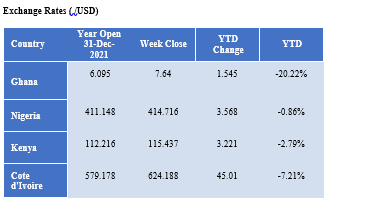High-ranking African personalities, including the World Bank’s president, David Malpass, IMF managing director, Kristalina Georgieva, Egypt’s environment minister Yasmine Fuoad and Macky Sall, president of Senegal and chair of the African Union, met in London at the three-day Ibrahim Governance Forum between 25th and 27th May 2022 to discuss climate-related issues and reject the lack of consideration of Africa’s development by the international community.
An all-important issue that cropped up at the Forum was that of the production of gas energy by African countries. This originates from the condemnation of fossil fuel energy financing by parties at COP26 in Glasgow (2021), where it was agreed that financing for gas energy projects must come to an end. Conversely, through the forum’s report, ‘The Road to COP27: Making Africa’s Case in the Climate Debate,’ participants have condemned the COP26 pledge and argue that gas is indeed a necessary transition fuel for the entire continent. They argue that there needs to be a rethinking on the role of African gas particularly by Western countries.
It is worthy to note that at COP26 last year, 39 countries and development agencies signed and agreed to phase out and eventually stop providing direct international financing for fossil fuel projects by the current year’s end. Alongside this, the World Bank had also agreed to stop supporting natural gas projects on the basis of a worsening climate change situation. Also, major countries like the USA and the UK announced, in the lead-up to COP26, that they would not be providing concessional finance to projects that focused on the development of upstream gas. This embargo on climate finance was taken in efforts to continue to align countries of the world with the 1.5°C target established in the Paris climate agreement.
The ‘The Road to COP27: Making Africa’s Case in the Climate Debate’ report argues that increasing natural gas in Africa does not spell a climate disaster and that there are numerous environmental benefits for expanding gas use on the continent. The African continent has plentiful gas, a third of the world’s new deposits of gas have been discovered on the continent in the last ten years. Nigeria, Mozambique, Ghana, Senegal and many more African countries have gas deposits they are already developing along with other US and European organizations. It is also an established fact that gas can go a long way to address the continent’s energy needs.
Also, the combination of a growing African population, rising incomes and increasing urbanization spells increasing demand for electricity across the continent, which is expected to double or even triple by the year 2040 at this current rate. This shows that the continent’s energy needs are urgent and must be addressed. This means that halting the financing of fossil fuels has great effects, it may lead to slowing down poverty reduction, it could increase energy costs for the poor and further repress incomes and job creation on the continent. Hypothetically, if the electricity needs of 48 sub-Saharan countries were to be addressed immediately by a tripling of electricity consumption, through 100% natural gas means, the resulting additional consumption would only contribute to a mere 0.6% of annual global emissions.
The development of these gas deposits could also enable industrialization and increased agricultural activity propelled by the use of fertilizers thereby ensuring food security and pushing economic growth across the continent. In line with this, the report argues that stopping international finance for natural gas stands as a threat to Africa’s development: “much of the global community has adopted a one-size-fits-all approach to fossil fuel financing, with little consideration for Africa’s energy poverty, small carbon footprint and the continent’s right to development.”
Evidently, it can be argued that closing off gas consumption to the continent carries a huge element of unfairness towards African countries. Beyond the effects this action holds, with the turn of events on the global front this year, it can be argued that African gas does have huge potential. The European Union’s (EU) recent decision to reel back on Russian fossil fuels in reaction to Russia’s invasion of Ukraine over the last few months of this year is the reason.
While Europe’s dependence on Russian gas needs to be weaned off, it is also important to acknowledge the role African sources could play. African gas deposits do stand as a good opportunity to address the imbalance created by advanced countries and their stock of greenhouse gas emissions.










